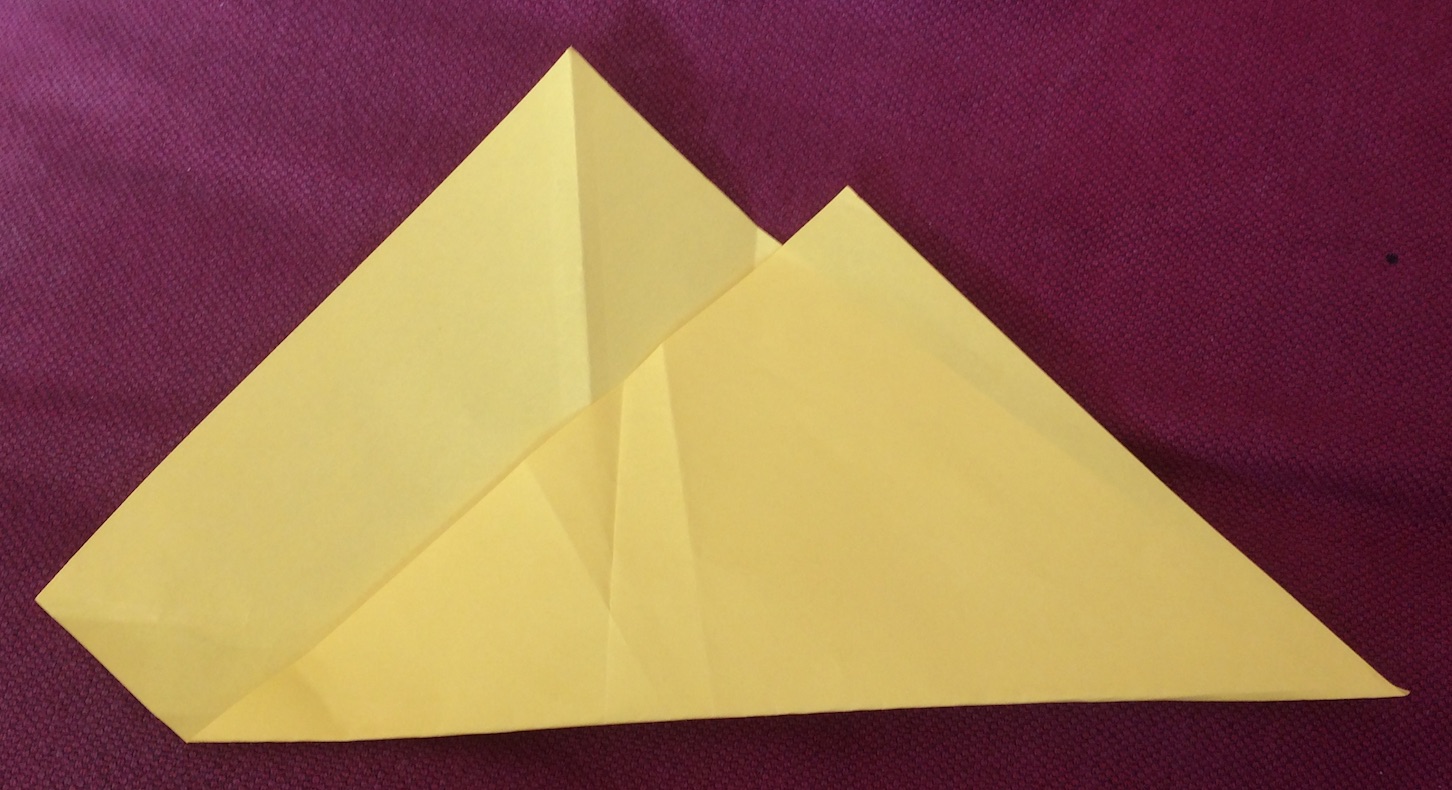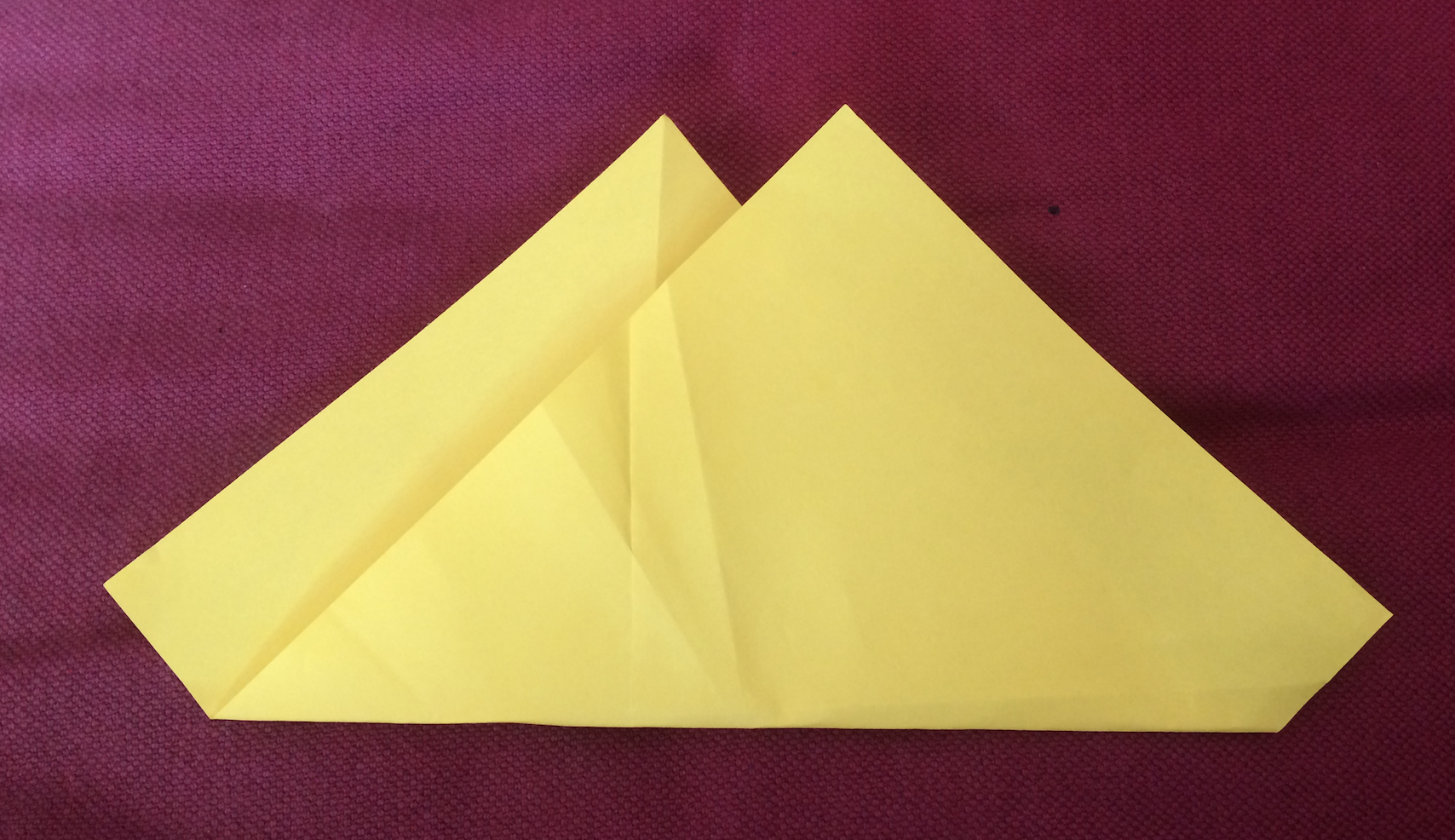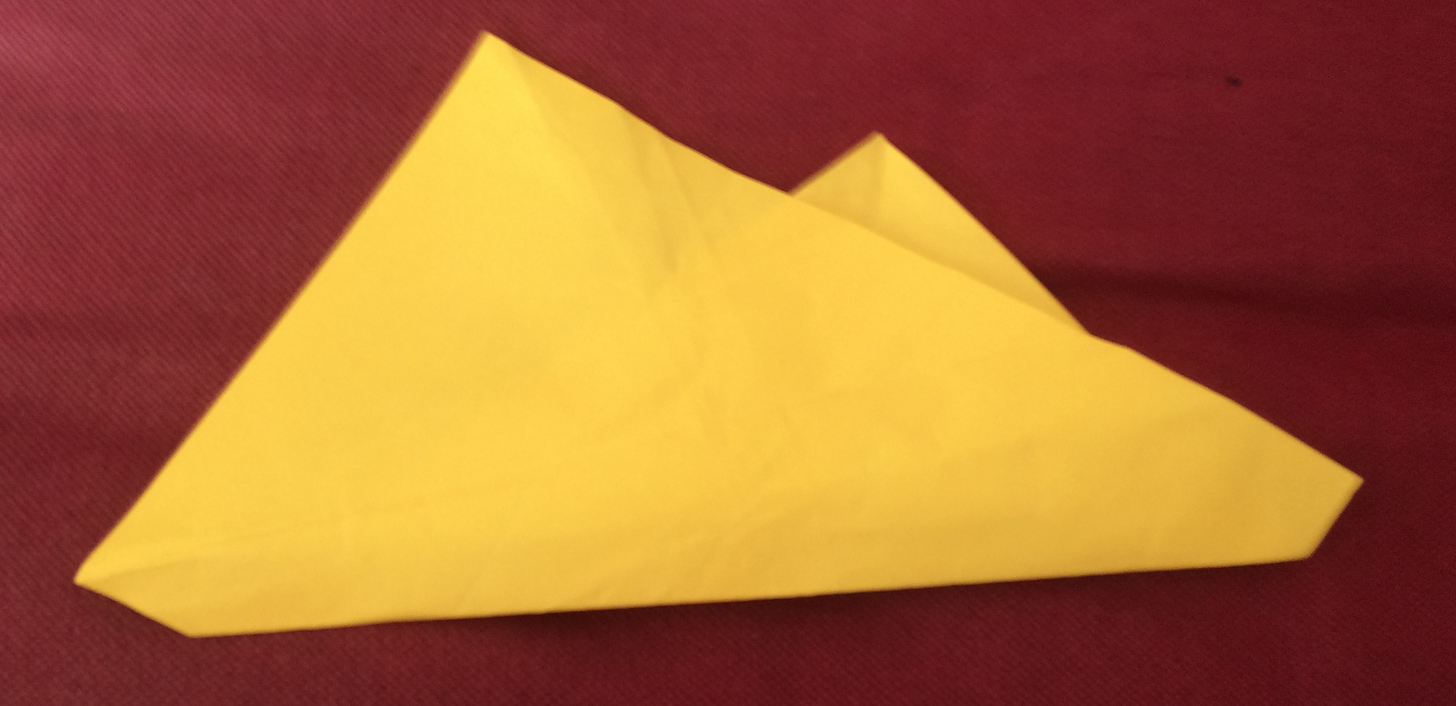-
Recent Posts
Recent Comments
Archives
- May 2019
- April 2019
- March 2019
- February 2019
- January 2019
- December 2018
- November 2018
- October 2018
- September 2018
- July 2018
- June 2018
- May 2018
- April 2018
- March 2018
- February 2018
- January 2018
- December 2017
- November 2017
- October 2017
- September 2017
- January 2017
- July 2016
- June 2016
- May 2016
- April 2016
- March 2016
- February 2016
- January 2016
- December 2015
- November 2015
- October 2015
- September 2015
- April 2015
- January 2015
Visitors around the world
Monthly Archives: July 2018
Update on Paper folding polygon challenge
We looked at this problem again today and this time tried to investigate the maximum number of sides on a polygon we could create using one fold starting from paper that was different initial polygons.
With one fold, we found the that the biggest polygons we could make were as below:
Starting with a triangle, one fold produced at most a polygon with 7 sides (heptagon)
With a quadilateral (investigated last time), we got a maximum of 9 sides.
With a pentagon, one fold produced a maximum of 11 sides,
Heptagons folded once produced a maximum of 13 sides,
etc.
We think we have a definite pattern now and think we have a general expresssion to describe the largest polygon that can be made from a piece of paper with x sides using n folds now is:
Maximum number of sides in folded polygon = x(n+1) +1
Well done for trying so many good ideas Y6 to investigate this.
Posted in Maths, Maths Challenges, News, pupils, Year 6
Leave a comment
Amazing artwork
 I can’t resist sharing this astonishing artwork with you which I came across on the BBC website earlier today. This 11-year old is clearly incredibly talented. The drawing above is called ‘Daily Bread’. I hope it inspires you! Click on the image to see the video and learn more about this astonishing young artist.
I can’t resist sharing this astonishing artwork with you which I came across on the BBC website earlier today. This 11-year old is clearly incredibly talented. The drawing above is called ‘Daily Bread’. I hope it inspires you! Click on the image to see the video and learn more about this astonishing young artist.
Posted in Art and Design, News, pupils, Year 6
Leave a comment
Paper-folding maths problem
We had a fun maths lesson on Friday which has left us all thinking!
We started with oblong pieces of paper (A5) and the challenge was to see how many  different polygons we could make using one fold only. We then had to explore the properties of the different shapes and look for symmetry, regularity, etc. We discovered that we could not make a triangle with only one fold, but we could make a variety of quadrilaterals (discussed square (regular quadrilateral), trapezium, creating different parallelograms, etc.).
different polygons we could make using one fold only. We then had to explore the properties of the different shapes and look for symmetry, regularity, etc. We discovered that we could not make a triangle with only one fold, but we could make a variety of quadrilaterals (discussed square (regular quadrilateral), trapezium, creating different parallelograms, etc.).
Once we started looking at higher order polygons, we discovered we could make shapes up to nonagons but none were regular and only the shapes with odd numbers of sides (pentagon, heptagon, nonagon) could be created to have a line of symmetry with one fold.
Next someone suggested seeing how many different polygons they could make with two folds. Some people insisted they could make a tetradecagon (14), but others thought they could only make 13 (triskaidecagon). We are not entirely sure whether we are folding accurately so it would be good to try this again and confirm which is correct.
We decided then that we would spend the weekend investigating this further to see if there is a pattern that we can come up with to predict the maximum number of sides of polygons that can be made with a given number of folds and whether there is a mathematical explanation for this. We are sure there must be but we think we might need help to find out. So far, we think we have a sequence of 1 fold (max 9 side), 2 folds (max 13 sides), 3 folds (17 sides) which looks like there could be a pattern developing but it is getting harder and harder to be sure we have folded correctly which is why we think it would be good to see what other people think. We are wondering whether the increase in 4 each time has also got something to do with the number of sides in our initial shape (the oblong paper). Maybe we could investigate this further using a different polygon to start us off?
I have asked our friends in Year 6 at Long Itchington to see if they can help and am also asking some other people who love maths problems. I’ll let you know if we find out! If you discover anything more, it would be great to add a comment. There is a gold card for anyone coming up with ideas that they can explain to me clearly! We want to crack this before the end of term!
Posted in Maths, Maths Challenges, pupils, Year 6
2 Comments




